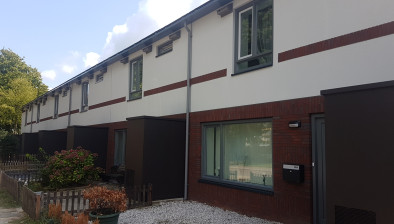Scottish projects among winners of £25m 5G rollout competition
 The UK government has announced the winners of a £25 million competition to pave the way for a future rollout of 5G technology in the UK.
The UK government has announced the winners of a £25 million competition to pave the way for a future rollout of 5G technology in the UK.
From the Orkney Islands, Inverness-shire and Perthshire to the West of England and south Wales, the six projects led by small and medium-sized enterprises (SMEs), universities and local authorities represent the best of UK innovation, resources and expertise.
They will test 5G across a range of applications, including smart farming with drones, using the ‘Internet of Things’ (IoT) to improve healthcare in the home, increasing manufacturing productivity and maximising the future benefits of self-driving cars.
They are part of a £1 billion commitment through the government’s Digital Strategy to keep Britain at the forefront of connectivity by accelerating the deployment of next generation digital infrastructure and driving forward new 5G business opportunities.
5G RuralFirst, led by Cisco and lead partner University of Strathclyde, will deliver testbeds and trials to exploit 5G benefits for rural communities and industries like agriculture, broadcasting, and utilities, to address the challenges of and build the business case for 5G rural deployment.
Based primarily on the Orkney Islands, and in the farmlands of Shropshire and Somerset, the project will integrate spectrum sharing strategies for 5G; bringing connectivity to rural communities, enabling smart farming in partnership with Agri-Epi Centre (including drones, autonomous farm vehicles and remote veterinary inspections); innovative methods of delivering broadcast radio over 5G working with the BBC, alongside the delivery of 5G connectivity for IoT in utility and other industries in rural areas.
Scot Gardner, chief executive of Cisco UK & Ireland, said: “5G has huge interest, but now we have to make it real - not just for cities but for everyone, including into rural communities. It is fantastic to see the government investing in research and development that helps the UK to lead in such a crucial space.
“Digital economies rely on connectivity so the UK can’t sit and wait. We need to be trialling now, understanding what 5G can do right across the UK. 5G RuralFirst looks to do just that. With live trials in Orkney, Shropshire and Somerset it will not only benefit those communities, but help the entire UK better understand what 5G makes possible, as well as the challenges there are in delivering world-class connectivity to all corners of the nation.”
5GRIT will be trialling innovative use of 5G technology across a range of rural applications, such as smart agriculture, tourism and connecting poorly-served communities, using shared spectrum in the TV bands and a mix of local ISPs and self-provision.
The aim is to ultimately make high quality connectivity available across Cumbria, Northumberland, North Yorkshire, Lincolnshire, Inverness-shire, Perthshire and Monmouthshire. Here the consortium will develop 5G-ready AR apps for tourists and investigate how high-bandwidth wireless connectivity can increase food production in farming, including through use of AR and an unmanned aerial system.
Steve Jagger, managing director of Quickline Communications, said: “We feel that 5G can unlock the potential of rural areas through better connections for residents, businesses, farmers and visitors. Our consortium brings together innovative businesses and leading Universities to make the 5G dream a rural reality.”
Lord Duncan, UK government minister for Scotland, said: “Putting Scotland at the heart of developing 5G technology is fantastic news as it will help people up and down the country become among the first to feel the benefits of this new generation of world-class digital infrastructure.
“The UK Government is determined to be a global leader in this next wave of mobile technology and these trials – using Scotland’s renowned skills and expertise in this field - will help us take early advantage of the potential of 5G, creating a pioneering digital economy that works for everyone. “
Each testbed will receive between £2m and £5m in UK government grants, as part of a total investment of £41m from private sector and other public sector funding, to explore new ‘fifth generation’ mobile communications technologies that use high frequency spectrum to deliver internet speeds of over a gigabit per second.






